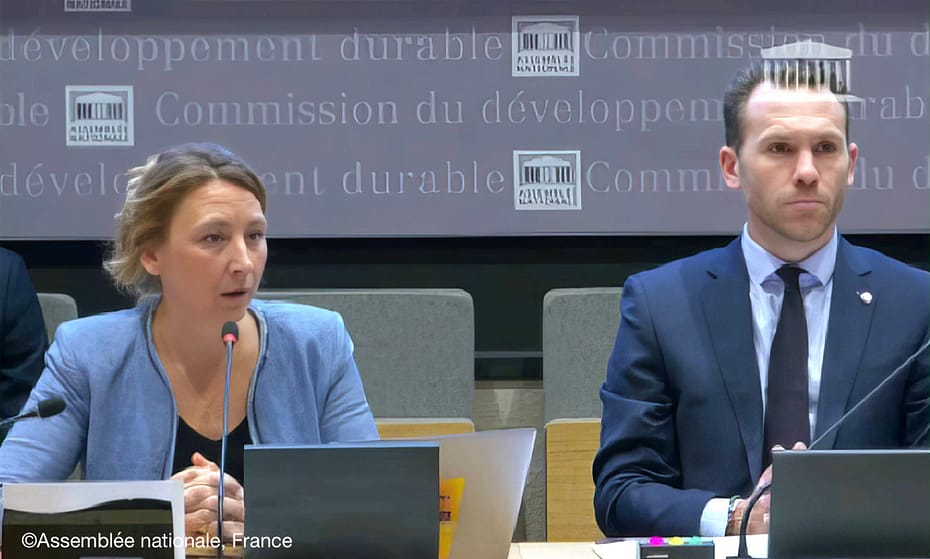Proposed French hunting import and export ban defeated, for now
On 21 November, Sandra Regol (New Ecological and Social People’s Union MP) and Corinne Vignon (Renaissance Party MP) tabled a bill aimed at banning the import and export of hunting trophies of all species listed under CITES, as well as all forms of publicity surrounding these activities, i.e. a total ban. This populist proposal is full of errors and has no scientific basis. It relies heavily on a report by the activist association Human Society International (HSI) Europe and a biased opinion poll organised by the International Market Research Group and commissioned once again by HSI Europe.
Resource Africa Europe, in partnership with the Association des Guides de Grande Chasse (AGGC) and with the support of numerous French and foreign experts and researchers, has led the counter-offensive. A letter signed by around a hundred scientists from all over the world, including the government ministers responsible for the environment and the national parks of Namibia, Botswana and Tanzania, has been sent to the French authorities and to all members of parliament to alert them to the dramatic and irreversible consequences that such a law, if adopted, would have both for biodiversity and for the indigenous peoples of the exporting countries.
Indeed, proposing a “blanket ban” is particularly irresponsible because there is no better alternative, or even an equivalent alternative, of wildlife-based revenues ready to replace trophy hunting revenues at the speed and scale required. Existing revenue streams are already unable to effectively cover the costs of the vastly under-funded national parks, the fight against poaching and the resolution of the human-wildlife conflicts that are exploding in wildlife-rich countries. Photographic tourism cannot currently support the large areas currently conserved using income from trophy hunting in Africa (1.4 million km², a fifth more than the national parks). If trophy hunting is banned, these vast territories will be converted to more profitable land uses such as agriculture or livestock farming, and the rich biodiversity of these territories, which are almost three times the size of France, will be eradicated forever.
This law would also cause the loss of some 326 tonnes of meat, in Namibia alone, that hunters distribute each year free of charge to local communities that greatly appreciate this source of protein. Without a legal means of obtaining meat from wildlife, poaching would increase as people are forced to hunt illegally to obtain meat.
The proposed law is not only contrary to the desired effect, it is unnecessary. The existing regulatory framework, i.e. the CITES rules and the new European action plan on combating poaching, already effectively ensure that the legal and sustainable trade in species does not undermine conservation. On the contrary, sustainable use has demonstrated benefits for wildlife conservation and the fight against poverty. According to the IUCN Red List of Threatened Species the main causes of species extinction are habitat loss and fragmentation, poaching and human-wildlife conflict. Trophy hunting is not causing the extinction of any hunted species.
To further illustrate this point, countries that use trophy hunting as a tool for conserving CITES-listed species often have higher populations of these species than those that do not. This is the case in Botswana, Namibia and Zimbabwe, which rank 1st , 2nd and 5th in terms of big game conservation. France ranks 60th. These countries and so many others should be praised for their exemplary efforts and successes in conservation, yet they were not consulted beforehand by the French parliamentarians, even though CITES (resolutions 6.7 and 17.9) and the IUCN urge States wishing to introduce restrictions on the legal trade in species to do so.
MP Sandra Regol clearly doesn’t care about any of this. The hearings that she organised to inform the members of the Sustainable Development and Town and Country Planning Committee due to examine the bill on 24 January were shockingly impartial. The lucky few who were consulted included the French IUCN Committee, a French animal rights organisation (Fondation Droit Animal, éthique et sciences), the Four Paws association, the Born Free Foundation, Human Society International Europe, the Jane Goodall Institute and the Brigitte Bardot Foundation.
Who could ask for more! Not a single representative of the southern African countries and EU management programmes directly affected, nor of regulatory bodies such as the CITES Secretariat or hunting tourism professionals. The amendments adopted on 24 January by the Sustainable Development Committee make currently law-abiding hunters look like criminals: The penalty for promoting or advertising the hunting of any of the species listed in the 3 appendices to CITES has been set at 3 months’ imprisonment and a €75,000 fine.
Reacting to this propaganda, IUCN’s Africa Councillor, Professor Brian Child, said: “You’re consigning people to poverty with a disposable, fantasy life alternative – it’s frightening. I bet you’ve never gone hungry or known a mother who can’t feed her children.”
Prof. Child continues, “The greatest threat to natural systems is agriculture. Farming destroys soil and biodiversity. In southern Africa, we realised that it was better to promote wild species than domestic ones. We have done more rewilding than anywhere else on the planet. We recognised that the best custodians of wildlife were farmers and communities, not distant environmentalist elites, and we gave them ownership. If we stop hunting, we stop funding around 70% of the wildlife in our region. Do you want us to put this land back under cultivation? Because that’s what you’re doing. You are indirectly killing wild animals, putting cows back on the land and taking food and projects away from the world’s poorest people. Your supposedly ethical and totally inaccurate arguments are doing enormous damage to the world’s largest experiment in wildlife recovery by poor people. And they are being used in the most arrogant and colonial way possible!”
In the meantime, the examination of the bill scheduled for the evening of 1st February 2024 did not take place, a fortunate outcome! However, it could resurface during the New Ecological and Social People’s Union parliamentary recess on 4 April. If it does, we call on French parliamentarians to undertake proper consultations with the countries that will be most affected by this law.
This article was originally published in Chasses Internationales, April-May 2024.



